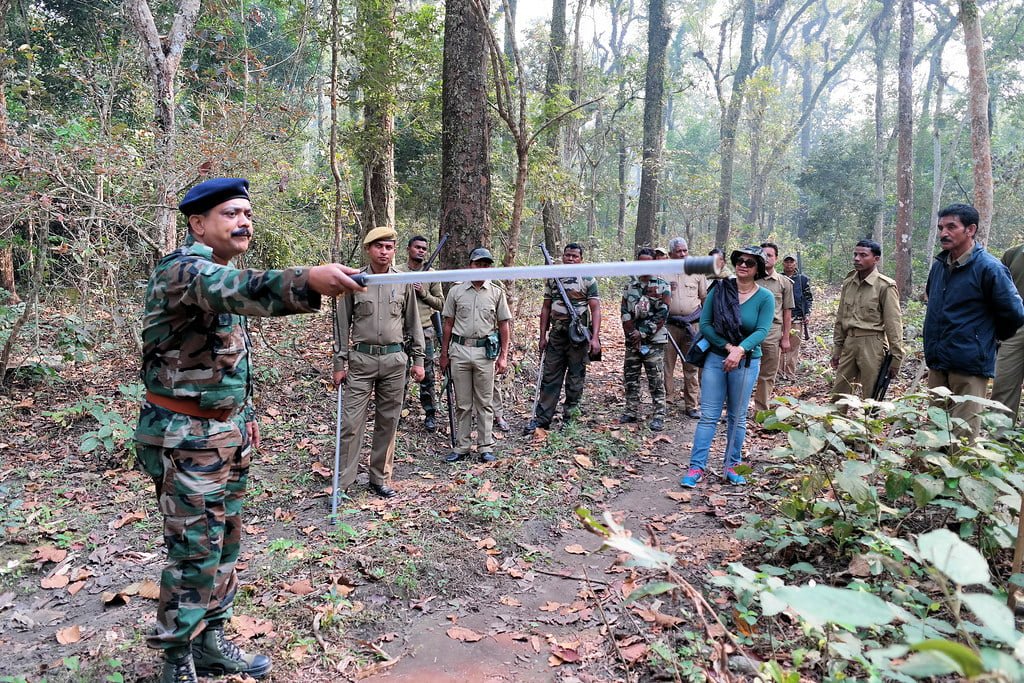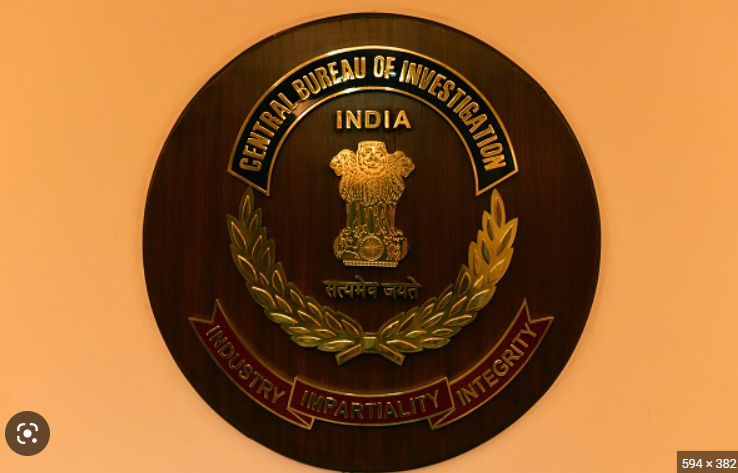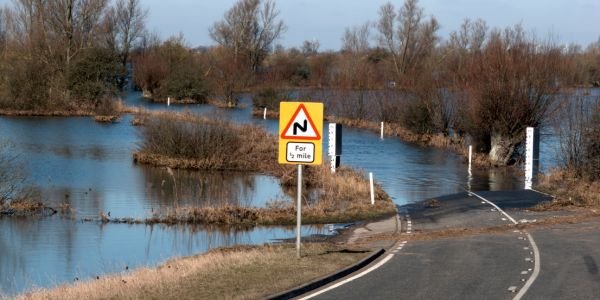Table of Contents
dfo full form in India?
Dfo full form: In India, the full form of DFO is District Forest Officer. DFO is a senior level officer in the Indian Forest Service (IFS) who is responsible for managing and preserving the forests and wildlife within a specific district. They are appointed by the state government and are responsible for enforcing the laws and regulations that govern the use and management of forests and wildlife, as well as for developing and implementing forest management plans.
The DFO is responsible for the overall management of the forests in their district, which includes activities such as tree planting, thinning, and pruning to ensure the health and productivity of the forest. They also work to prevent and control forest fires, pests, and diseases. Additionally, the DFO is responsible for monitoring and protecting wildlife within the district and taking steps to protect them from poaching, habitat destruction, and other threats.
The DFO also plays a crucial role in coordinating with other agencies and organizations to ensure that the forest and wildlife resources management is coordinated and effective. This includes working with other DFOs, local communities, NGOs, and private sector organizations. Additionally, the DFO is responsible for educating the public about the importance of forests and wildlife and encouraging them to actively protect these resources.
To become a DFO, individuals typically need to have a degree in forestry, wildlife management, or a related field. They must also have several years of experience working in a related field and pass a rigorous selection process that includes a written exam and an interview.
Overall, a District Forest Officer’s role is crucial in India. They play a vital role in managing and preserving the forests and wildlife of their districts, and their efforts are essential for the long-term sustainability of these resources. They are committed to preserving the natural beauty of the area and its inhabitants, and they go above and beyond to make sure that their efforts are successful. They are true guardians of the forest and wildlife, and they are an inspiration to many.
District/Divisional Forest Officer
A District/Divisional Forest Officer (DFO/DVFO) is a highly-skilled and experienced professional who is responsible for managing and preserving the forests and wildlife within a specific district or division. These individuals play a crucial role in ensuring that the natural resources of the area are protected and sustainably managed for future generations.
The primary responsibilities of a DFO/DVFO include:
Developing and implementing forest management plans: This includes activities such as tree planting, thinning, and pruning to ensure the health and productivity of the forest. They also work to prevent and control forest fires, pests, and diseases.
Monitoring and protecting wildlife: DFOs/DVFOs are responsible for monitoring the populations of wildlife within the district or division and taking steps to protect them from poaching, habitat destruction, and other threats.
Enforcing forestry laws and regulations: These professionals are responsible for enforcing the laws and regulations that govern the use and management of forests and wildlife. This includes conducting investigations, issuing fines, and making arrests when necessary.
Coordinating with other agencies: DFO/DVFOs work closely with other government agencies and organisations to ensure that the management of the forest and wildlife resources is coordinated and effective. This includes working with other DFOs and DVFOs, as well as with local communities, NGOs, and private sector organisations.
Providing education and outreach: DFO/DVFOs play an important role in educating the public about the importance of forests and wildlife, and encouraging them to take an active role in protecting these resources. This includes providing information and educational materials, as well as organising and participating in public events and activities.
To become a DFO/DVFO, individuals typically need to have a degree in forestry, wildlife management, or a related field. They must also have several years of experience working in a related field, and pass a rigorous selection process that includes a written exam and an interview.
DFO/DVFOs are highly-skilled and experienced professionals who play a critical role in protecting and managing the forests and wildlife of their districts or divisions. They work tirelessly to ensure that these resources are sustainably managed and protected for future generations. They are committed to preserving the natural beauty of the area and its inhabitants, and they go above and beyond to make sure that their efforts are successful. They are true guardians of the forest and wildlife, and they are an inspiration to many.
District/Divisional Forest Officer training
District/Divisional Forest Officer (DFO/DVFO) training typically includes both classroom instruction and hands-on field experience.
Forest ecology and management: This includes the study of the different types of forests, their ecology and composition, and the various methods used to manage and protect them.

Wildlife management: This includes the study of the different types of wildlife found in the area, their habitat requirements, and the methods used to protect them.
Forestry laws and regulations: This includes the study of the laws and regulations that govern the use and management of forests and wildlife.
Fire management: This includes the study of the causes of forest fires, the methods used to prevent and control them, and the techniques used to suppress fires.
Forest inventory and monitoring: This includes studying the methods used to assess the health and productivity of the forest and the methods used to monitor the wildlife populations.
GIS and remote sensing: This includes the study of the use of GIS and remote sensing technologies in forest and wildlife management.
Public education and outreach: This includes the study of the methods used to educate the public about the importance of forests and wildlife and to encourage them to take an active role in protecting these resources.
In addition to classroom instruction, DFO/DVFO trainees typically participate in hands-on field experience, where they can apply what they have learned in a real-world setting. This may include working on forestry projects, monitoring wildlife populations, or participating in fire suppression efforts.
The duration of the training varies depending on the institution and program, but it can range from several months to a year or more. After completing the training, individuals must pass a rigorous selection process, including a written exam and an interview, before they can be appointed as a DFO/DVFO.
Overall, DFO/DVFO training is a comprehensive and challenging process that equips individuals with the knowledge, skills, and experience needed to effectively manage and protect the forests and wildlife of their districts or divisions. It is a challenging but rewarding career that allows individuals to make a real difference in preserving and protecting the natural world.
District Forest Officer Facilities
District Forest Officer (DFO) facilities typically include:
Office space: DFOs typically have a designated office space where they can conduct meetings, work on paperwork, and store important documents and equipment.
Communication equipment: DFOs are provided with communication equipment such as telephones, radios, and internet access to facilitate communication with other agencies and organizations.
Vehicles: DFOs are usually provided with jeeps or SUVs to help them move around their district or division and remote access areas.
Laboratory and research facilities: DFOs have access to laboratory and research facilities to conduct experiments and analyze samples, including genetic material and soil samples.
Field camps: DFOs have access to field camps, which are typically located in remote or hard-to-reach areas. These facilities provide accommodation, food, and other essentials for the staff working in the field.
Medical facilities: DFOs have access to medical facilities, including first aid kits, and emergency medical care, in case of accidents or injuries.
Training facilities: DFOs have access to training facilities, such as classrooms, where they can participate in training programs and workshops to enhance their skills and knowledge.
Equipment: DFOs are provided with necessary equipment such as binoculars, GPS devices, cameras, and other tools to help them carry out their work effectively.
Safety equipment: DFOs are provided with safety equipment such as helmets, gloves, and protective clothing to ensure their safety while working in the field.

Overall, DFO facilities are designed to provide DFOs with the resources and support they need to effectively manage and protect the forests and wildlife of their districts or divisions. These facilities are essential for helping DFOs to carry out their duties and ensure that the resources are sustainably managed and protected for future generations.
dfo salary
The salary of a District Forest Officer (DFO) in India varies depending on factors such as their experience level, the state they are working in, and the specific duties and responsibilities of their role. However, on average, DFOs in India can expect to earn a salary in the range of Rs. 50,000 to Rs. 80,000 per month.
In addition to their base salary, DFOs may also be eligible for various benefits such as housing allowances, medical insurance, and retirement benefits. They may also be eligible for performance-based bonuses and other incentives.
It’s worth mentioning that DFO’s salary also depends on the level of their appointment, for instance, DFO’s working in lower level or remote areas may earn less than those working in higher level or urban areas.
It’s also worth mentioning that DFOs are part of the Indian Forest Service (IFS) which is a Civil service, therefore they are eligible for many benefits that come along with it, such as pension schemes, health care, and other benefits.
Overall, the salary of a DFO in India is competitive and commensurate with the level of education, experience, and responsibility required for the role. DFOs are highly-skilled and experienced professionals who play a critical role in managing and protecting the forests and wildlife of their districts or divisions, and their efforts are essential for the long-term sustainability of these resources.
FAQs
Q1. What is DFO?
Answer: DFO (Dissolved Free Ozone) is a proprietary ozone-generating technology developed by OZO Partners, LLC. It uses a patented, non-thermal plasma source to produce ozone in water, thereby providing a safe and effective method for treating water for drinking, swimming, and other applications.
Q2 How does DFO work?
Answer: DFO works by using a non-thermal plasma source to generate ozone in water. The ozone is then circulated through the water and reacts with organic material to disinfect and oxidize it. The ozone is then safely dissipated from the water as it leaves the system
Q3. What are the benefits of using DFO?
Answer: DFO is an environmentally friendly and cost-effective way to disinfect and oxidize water. It is effective at removing contaminants, such as bacteria, viruses, and other microorganisms, as well as reducing odors and eliminating pollutants. It also has the benefit of not producing any hazardous byproducts.
Q4. What are the limitations of using DFO?
Answer: DFO is not effective at removing inorganic contaminants, such as metals and other heavy metals. Additionally, it is not effective at removing dissolved gases, such as chlorine and sulfur dioxide, nor is it effective at removing certain organic compounds.
Q5. How often should DFO be used?
Answer: DFO should be used on a regular basis to ensure that water remains safe and free of contaminants. The frequency of use will depend on the type of water being treated and the desired level of disinfection. Is DFO safe to use? Yes, DFO is safe to use. It is a non-toxic and non-corrosive technology that does not produce any hazardous byproducts.
Also, read the station master’s salary






























